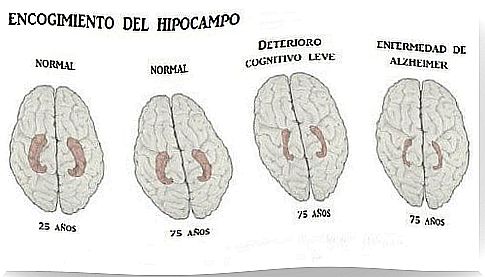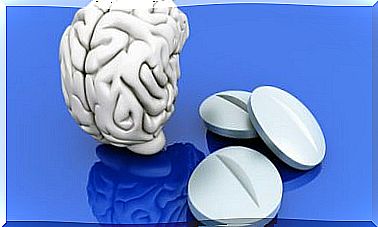Learn To Recognize The 10 Main Signs Of Alzheimer’s Disease
One of the symptoms that can indicate the beginning of Alzheimer’s disease is forgetting vocabulary, or not being able to keep up with a conversation conventional due to the difficulty of some words.

Alzheimer’s disease is a progressive brain condition that directly affects memory. However, it can also influence the way of thinking and the way of behaving.
It is the most common form of dementia in older people. This is defined as the disease that describes the loss of memory and other intellectual abilities that, consequently, affect the quality of life of those who suffer from it.
This disease represents 60 to 80% of dementia cases in the world. In addition, it affects more than 5.4 million people in the United States and it is estimated that by 2030 that number will rise to 16 million.
Typically, it affects older adults. However, there have also been cases of younger people, their symptoms beginning after 40 years of age.
Signs of Alzheimer’s disease
Detecting the signs of Alzheimer’s early is essential to give a timely diagnosis and treatment. For this reason, it is very important to educate yourself about possible primary symptoms and learn to differentiate them from other mental problems.
1. Sudden changes in memory
One of the signs of Alzheimer’s disease, especially in its early stages, is forgetting newly learned information, such as important dates or events. Usually, faced with this symptom, the person is forced to use notes or electronic devices to be able to remember what he could do on his own before.
2. Difficulty planning or solving problems

Some people lose their ability to develop or follow a plan that involves handling numbers. They may also have a hard time following simple things like a known recipe or managing monthly bills. This, according to a study by the Journal of the Psychiatric Hospital of Havana, published in its third volume in 2014.
3. Problems performing common tasks
Often times, people with Alzheimer’s have difficulty completing daily tasks both at home and at work. Sometimes they have trouble getting to a familiar place, managing a budget, or remembering the rules of a familiar game.
4. Disorientation of time and place
When the disease has advanced, people begin to forget the dates, the seasons and the passage of time. This symptom requires a lot of attention since the person may forget where they are and how they got to that point. This is one of the symptoms that are used as an indication that those who suffer from AD should be under constant supervision.
5. Loss of interest and motivation for activities you used to enjoy.
As shown in a study published in the espaciologopedico.com , When we talk about dementias, apathy is a frequent symptom. And particularly in Alzheimer’s disease, as the deterioration progresses, it has an increasing presence in the lives of those affected.
Apathy is a consequence of neurochemical or structural alterations in our brain and can manifest itself both with its own clinical criteria and as a symptom within other syndromes (dementia, depression, Alzheimer’s, Parkinson’s…).
6. Language problems
The National Institute of Aging , of the US Department of Health & Human Services , in a study called “Changes in communication skills related to Alzheimer’s disease,” states that communication is difficult for people with Alzheimer’s disease. Alzheimer’s, as they have trouble remembering things.
They may have a hard time finding words or forgetting what they want to say. You may feel impatient and want the person to just say what they want, but the person cannot.
7. Move things around
Forgetting the proper place for everything is also an early symptom of Alzheimer’s disease. It can happen, for example, that the person puts the iron in the refrigerator or forget where they left something that they used to always leave in a certain place before.
8. Loss of ability to make decisions

This disease can cause a person to decrease or lose their ability to make important decisions, both personally and financially. Thus, they may not know how to handle accounts related to cash, or they are easily convinced.
9. Loss of initiative
Lack of interest in regular activities may be an indication that something else is going on. Alzheimer’s causes a person to lose initiative to do hobbies, social activities, projects at work, or sports. In addition, the changes experienced can cause you to even lose interest in participating in activities that involve meeting other people.
10. Changes in mood or personality
The mood and personality of people with Alzheimer’s are among the most notable changes, both in the early stages and later in the disease. They are often confused, suspicious, depressed, fearful, or anxious. In addition, they can become irritable, with feelings of anger with everything around them.
Now that you know some of the possible symptoms, hopefully it will be easier for you to recognize this disease. The best thing in these cases is to always go to a specialist. In fact, some of these symptoms coincide with other problems, such as depression. Therefore, it is best to always go to the doctor to confirm if it really is Alzheimer’s or another type of problem.
Main image courtesy of © wikiHow.com









